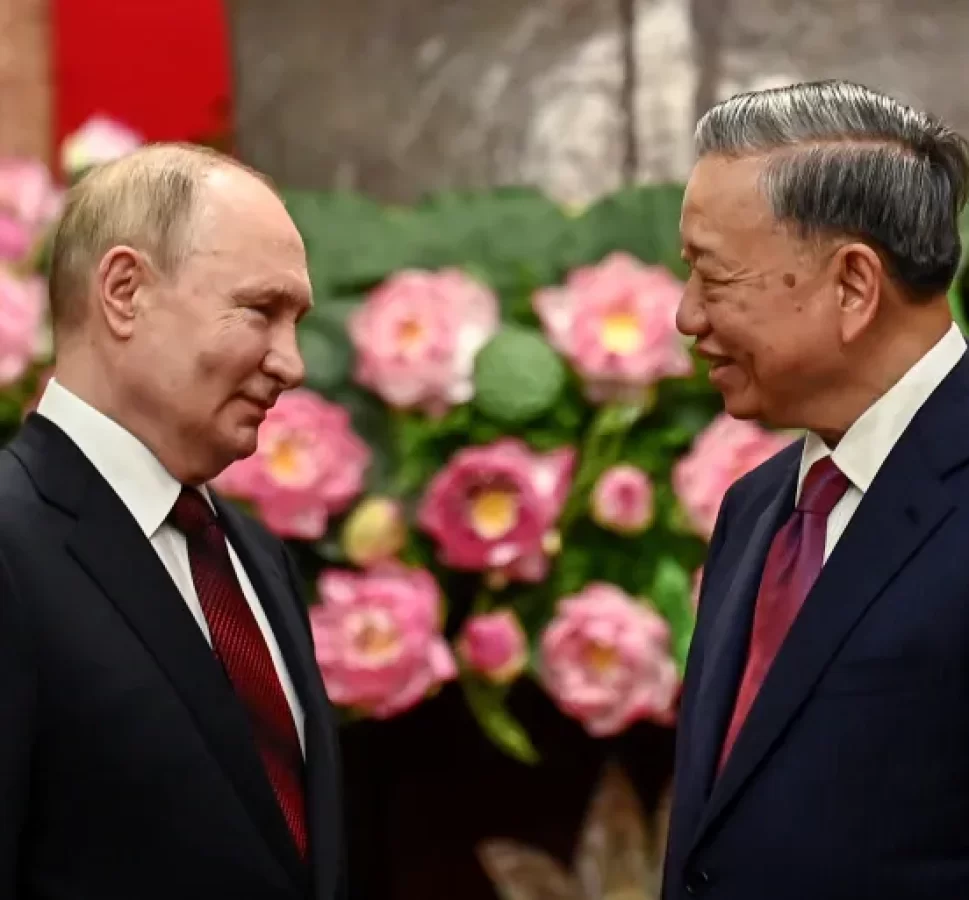
Russian president says strengthening strategic partnership with Vietnam is one of his country’s priorities.
Vietnamese President To Lam has welcomed Russian President Vladimir Putin in Hanoi by promising to boost ties for the peace and stability of the region as well as the world.
Putin, who was received with a 21-gun salute during a military ceremony on Thursday, said strengthening a comprehensive strategic partnership with Vietnam was one of Russia’s priorities.
The visit has resulted in a sharp rebuke from the United States. Russia faces a slew of US-led sanctions for its full-scale invasion of Ukraine.
In 2023, the International Criminal Court in The Hague issued an arrest warrant for Putin for war crimes. The Kremlin rejected it as “null and void”, stressing that Moscow does not recognise the court’s jurisdiction.
Reporting from Hanoi, Al Jazeera’s Tony Cheng said that Vietnam was “very keen to make … Putin feel welcome but at the same time they do have strong relationships with China and the US they want to protect”.
The Russian leader concluded a defence pact with North Korea a day earlier. But in Vietnam, he only signed deals to further cooperation on education, science and technology, energy, climate change and health.
“Weapons will be discussed but not those going to Russia but those coming into Vietnam,” Cheng said. “The Vietnam military is still very heavily reliant on Russian-made arms, but they found it increasingly difficult to get them, particularly since the war in Ukraine started.”
“So, they will be wanting some guarantees, but there is also pressure on the Vietnamese military to diversify their military reliance on Russia. That is probably a theme for the trip.”
Warm welcome
Putin arrived at Vietnam’s Presidential Palace on Thursday, where he was greeted by schoolchildren waving Russian and Vietnamese flags.
He shook hands with and embraced Lam before a bilateral meeting and a joint briefing to the media.
The Russian leader is also scheduled to meet Communist Party General Secretary Nguyen Phu Trong – Vietnam’s most powerful politician – Prime Minister Pham Minh Chinh and parliamentary chief Tran Thanh Man.
Putin’s recent visits to China and now North Korea and Vietnam are attempts to “break the international isolation”, Nguyen Khac Giang, an analyst at Singapore’s ISEAS-Yusof Ishak Institute, told The Associated Press news agency.
The US and its allies have expressed growing concerns over a possible arms arrangement in which North Korea provides Russia with badly needed munitions for its use in Ukraine, in exchange for economic assistance and technology transfers that could enhance the threat posed by North Korean leader Kim Jong Un’s nuclear weapons and missile programme.
Both countries deny accusations of weapons transfers, which would violate multiple United Nations Security Council sanctions.
Meanwhile, Russia is important to Vietnam for two reasons, Giang said: It is the biggest supplier of military equipment to the Southeast Asian nation, and Russian oil exploration technologies help maintain its sovereignty claims in the contested South China Sea.
“Russia is signalling that it is not isolated in Asia despite the Ukraine war, and Vietnam is reinforcing a key traditional relationship even as it also diversifies ties with newer partners,” Prashanth Parameswaran, a fellow with the Wilson Center’s Asia Program, told AP.
‘Friendly relations’
Vietnam and Russia have had diplomatic relations since 1950, and this year marks 30 years of a treaty establishing “friendly relations” between them.
Evidence of this long relationship and its influence can be seen in Vietnamese cities like the capital, where the many Soviet-style apartment blocks are now dwarfed by skyscrapers and a statue of Vladimir Lenin, the founder of the Soviet Union, stands in a park where children skateboard every evening.
Many of the Communist Party’s top leaders in Vietnam studied in Soviet universities, including party chief Trong.
Bilateral trade between Russia and Vietnam was valued at $3.6bn in 2023, compared with $171bn with China and $111bn with the US.
Since the early 2000s, Russia accounted for about 80 percent of Vietnam’s arms imports. This has been declining over the years due to Vietnamese attempts to diversify its supplies. But to entirely wean itself off Russia will take time, said Giang.






